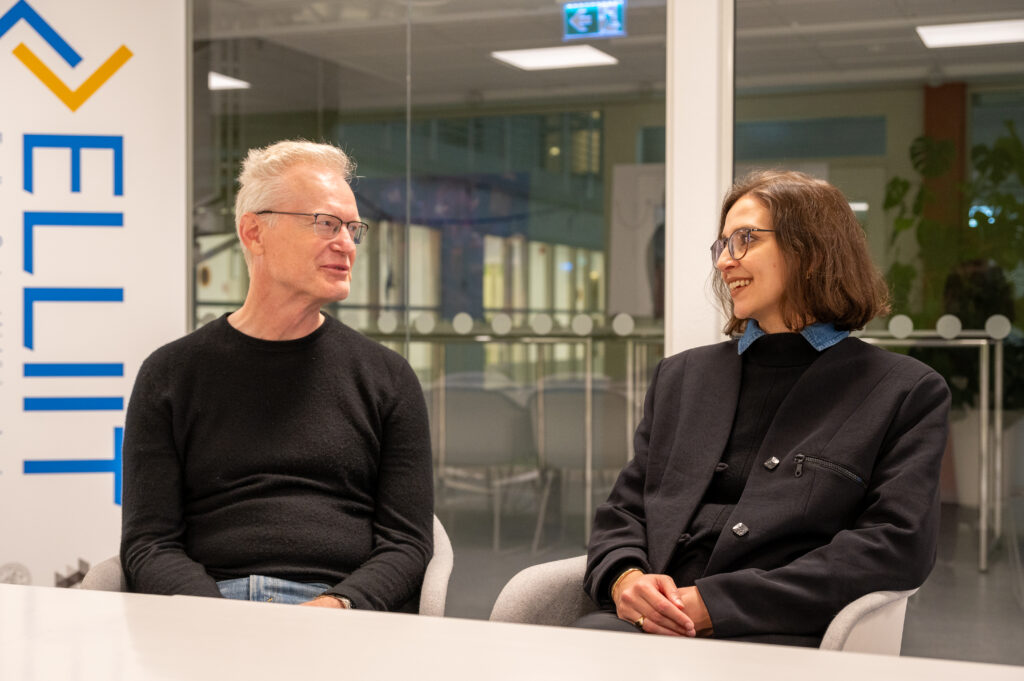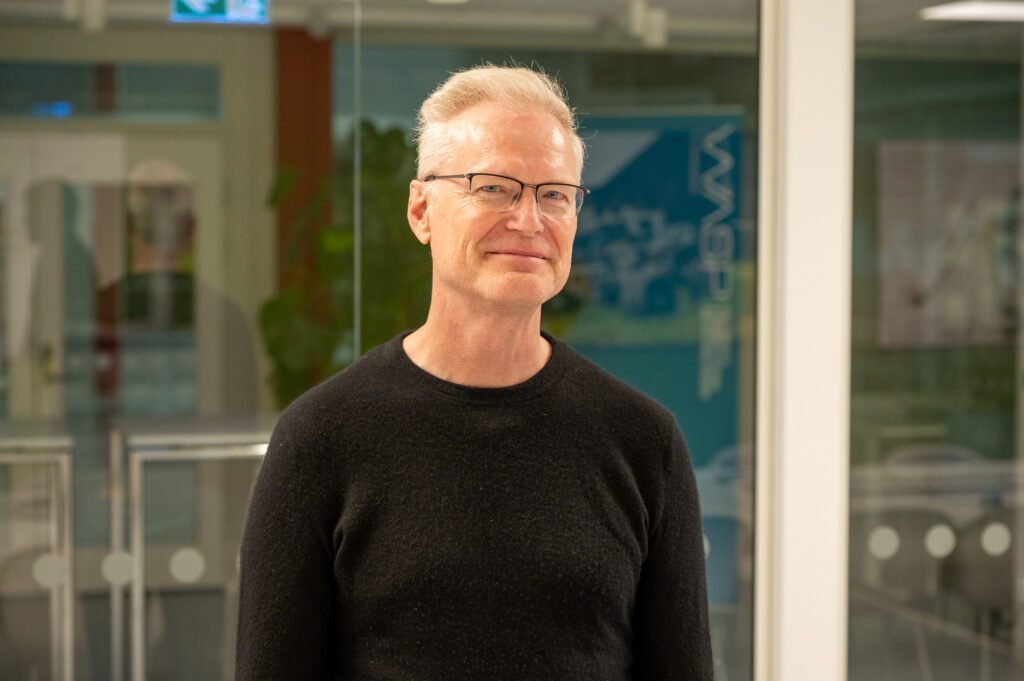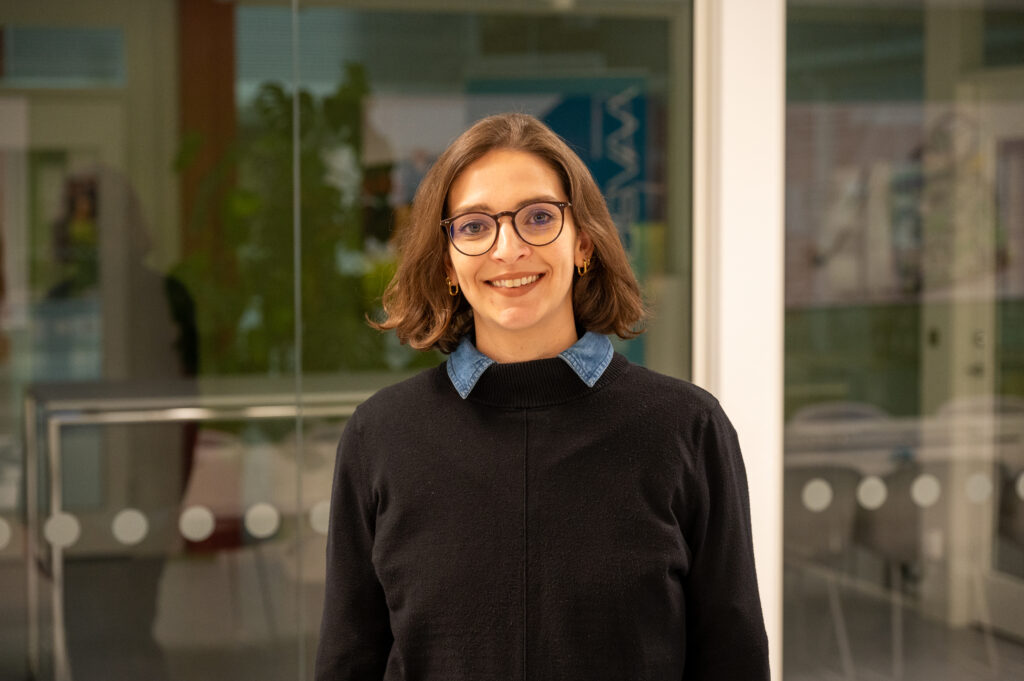
In the fall of 2024, researchers from around the world once again gathered at Linköping University for ELLIIT’s five-week focus period. This time, the goal was to initiate and deepen collaborations in climate research using machine learning.
The strategic research environment ELLIIT organizes a focus period twice a year. These focus periods serve as an ambitious visiting researcher program aimed at connecting prominent international researchers within specific interdisciplinary themes while also inspiring young ELLIIT researchers through personal interactions with leading global experts.
The theme for this fall’s focus period was “Machine Learning for Climate Science,” an interdisciplinary subject that brought together participants with diverse backgrounds and expertise. Two of the visiting scholars were Tomas Landelius, researcher at SMHI, and Carolina Natel de Moura, postdoctoral researcher at Karlsruhe Institute of Technology (KIT).
A new approach
Tomas Landelius participated in the accompanying symposium and the second half of the focus period but had already spent considerable time at Linköping University in the past. At Linköping University, he earned his PhD in computer vision in 1997.

– “In my daily work at SMHI’s Research and Development Department, I develop methods for combining observations with forecasts (data assimilation/data fusion) and models to calculate solar radiation from satellite data. The latter has been used to create solar maps, such as the one used by the City of Linköping,” he explains.
A new feature of this fall’s focus period was asking participating researchers to prepare challenges in advance. The idea was to develop joint problem formulations and have something concrete to work on during the event.
How did you find the focus period, and what did you work on during your time here?
– “It has been incredibly rewarding and enjoyable. I’ve built several connections that I’m confident will lead to interesting collaborations in the future.
– During the focus period, we worked on several challenges. I was involved in two: one focused on filtering signals with generative diffusion models, and the other explored ways to represent seemingly complex signals in simpler ways,” says Tomas Landelius.
An excellent platform
Carolina Natel de Moura participated in the full five weeks of the focus period, as well as the symposium. Her research focuses on the modelling of ecosystems under climate and land use change.

– “I am particularly interested in how machine learning and extensive Earth observation data can help us improve our understanding of ecosystem dynamics and create more accurate predictive models.”
Could you tell us about the focus period and the seminars you held?
– “During the focus period, I contributed domain knowledge on ecosystem processes and insights into research gaps in this area. Both of my seminars provided excellent platforms to present my research findings and share my interests with colleagues.
– A key takeaway from the focus period was recognizing the immense value of collaborations between domain scientists and machine learning researchers. Interdisciplinary partnerships are essential for developing innovative solutions to long-standing challenges,” says Carolina Natel de Moura.
New Research Collaborations
When asked if they would recommend other researchers to participate in one of ELLIIT’s future focus periods, both scholars answered with a resounding “Absolutely!”
– “I wouldn’t hesitate to participate again. This experience has been invaluable for my academic growth, and I’ve learned a great deal from my colleagues. I believe the collaborations initiated during this period will lead to fruitful and long-term research opportunities. I highly recommend this program to other researchers looking to expand their networks and work on exciting research ideas,” says Carolina Natel de Moura.
Tomas Landelius agrees with her about expanding research networks:
– “One fun aspect was meeting David Bastviken from Tema at LiU, whom I hadn’t known before. This led to us now sketching out a research collaboration between SMHI and Tema. Lastly, being able to meet physically and share coffee and lunch breaks is also highly valuable for creativity,” Tomas Landelius concludes.
Visiting scholars
See the full list of visiting scholars and read more about their work.
ELLIIT Focus Period
Read more about the focus period on machine learning for climate science
